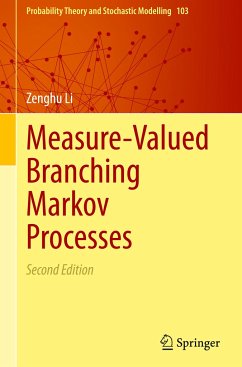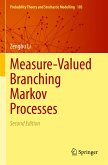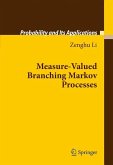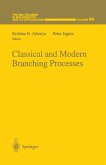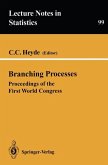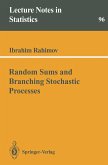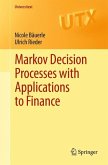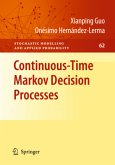This book provides a compact introduction to the theory of measure-valued branching processes, immigration processes and Ornstein-Uhlenbeck type processes.
Measure-valued branching processes arise as high density limits of branching particle systems. The first part of the book gives an analytic construction of a special class of such processes, the Dawson-Watanabe superprocesses, which includes the finite-dimensional continuous-state branching process as an example. Under natural assumptions, it is shown that the superprocesses have Borel right realizations. Transformations are then used to derive the existence and regularity of several different forms of the superprocesses. This technique simplifies the constructions and gives useful new perspectives. Martingale problems of superprocesses are discussed under Feller type assumptions. The second part investigates immigration structures associated with the measure-valued branching processes. The structures are formulatedby skewconvolution semigroups, which are characterized in terms of infinitely divisible probability entrance laws. A theory of stochastic equations for one-dimensional continuous-state branching processes with or without immigration is developed, which plays a key role in the construction of measure flows of those processes. The third part of the book studies a class of Ornstein-Uhlenbeck type processes in Hilbert spaces defined by generalized Mehler semigroups, which arise naturally in fluctuation limit theorems of the immigration superprocesses.
This volume is aimed at researchers in measure-valued processes, branching processes, stochastic analysis, biological and genetic models, and graduate students in probability theory and stochastic processes.
Measure-valued branching processes arise as high density limits of branching particle systems. The first part of the book gives an analytic construction of a special class of such processes, the Dawson-Watanabe superprocesses, which includes the finite-dimensional continuous-state branching process as an example. Under natural assumptions, it is shown that the superprocesses have Borel right realizations. Transformations are then used to derive the existence and regularity of several different forms of the superprocesses. This technique simplifies the constructions and gives useful new perspectives. Martingale problems of superprocesses are discussed under Feller type assumptions. The second part investigates immigration structures associated with the measure-valued branching processes. The structures are formulatedby skewconvolution semigroups, which are characterized in terms of infinitely divisible probability entrance laws. A theory of stochastic equations for one-dimensional continuous-state branching processes with or without immigration is developed, which plays a key role in the construction of measure flows of those processes. The third part of the book studies a class of Ornstein-Uhlenbeck type processes in Hilbert spaces defined by generalized Mehler semigroups, which arise naturally in fluctuation limit theorems of the immigration superprocesses.
This volume is aimed at researchers in measure-valued processes, branching processes, stochastic analysis, biological and genetic models, and graduate students in probability theory and stochastic processes.
From the book reviews:
"The present book appears to be the first monograph in textbook format that provides a rigorous treatment of general theory for a wide class of measure-valued processes. ... A selection of good examples throughout the book helps clarify the results. ... This is a well-written, concise and dedicated book. It will serve excellently as a platform and reference for the next phase of development of superprocesses and measure-valued branching processes." (Ingemar Kaj, Mathematical Reviews, Issue 2012 c)
"The present book is written for the purpose of providing a compact and rigorous basic theory of measured-valued branching processes and immigration processes. ... this book is well organized, the presentation is very systematic and sufficiently simple, and the key points are easy to understand. ... It is recommendable for graduate students and researchers working in the field of measure-valued processes and their related topics, including stochastic processes and probability theory." (Isamu Dôku, Zentralblatt MATH, Vol. 1235, 2012)
"The main purpose of this book is to give a compact and rigorous treatment of the basic theory of measure-valued branching processes and immigration processes. ... This book can be used as a reference of the basics of Dawson-Watanabe superprocesses and immigration superprocesses. It can also be used in a course for graduate students specialized in probability and stochastic processes." (Gyula Pap, Acta Scientiarum Mathematicarum (Szeged), Vol. 77 (3-4), 2011)
"The present book appears to be the first monograph in textbook format that provides a rigorous treatment of general theory for a wide class of measure-valued processes. ... A selection of good examples throughout the book helps clarify the results. ... This is a well-written, concise and dedicated book. It will serve excellently as a platform and reference for the next phase of development of superprocesses and measure-valued branching processes." (Ingemar Kaj, Mathematical Reviews, Issue 2012 c)
"The present book is written for the purpose of providing a compact and rigorous basic theory of measured-valued branching processes and immigration processes. ... this book is well organized, the presentation is very systematic and sufficiently simple, and the key points are easy to understand. ... It is recommendable for graduate students and researchers working in the field of measure-valued processes and their related topics, including stochastic processes and probability theory." (Isamu Dôku, Zentralblatt MATH, Vol. 1235, 2012)
"The main purpose of this book is to give a compact and rigorous treatment of the basic theory of measure-valued branching processes and immigration processes. ... This book can be used as a reference of the basics of Dawson-Watanabe superprocesses and immigration superprocesses. It can also be used in a course for graduate students specialized in probability and stochastic processes." (Gyula Pap, Acta Scientiarum Mathematicarum (Szeged), Vol. 77 (3-4), 2011)

